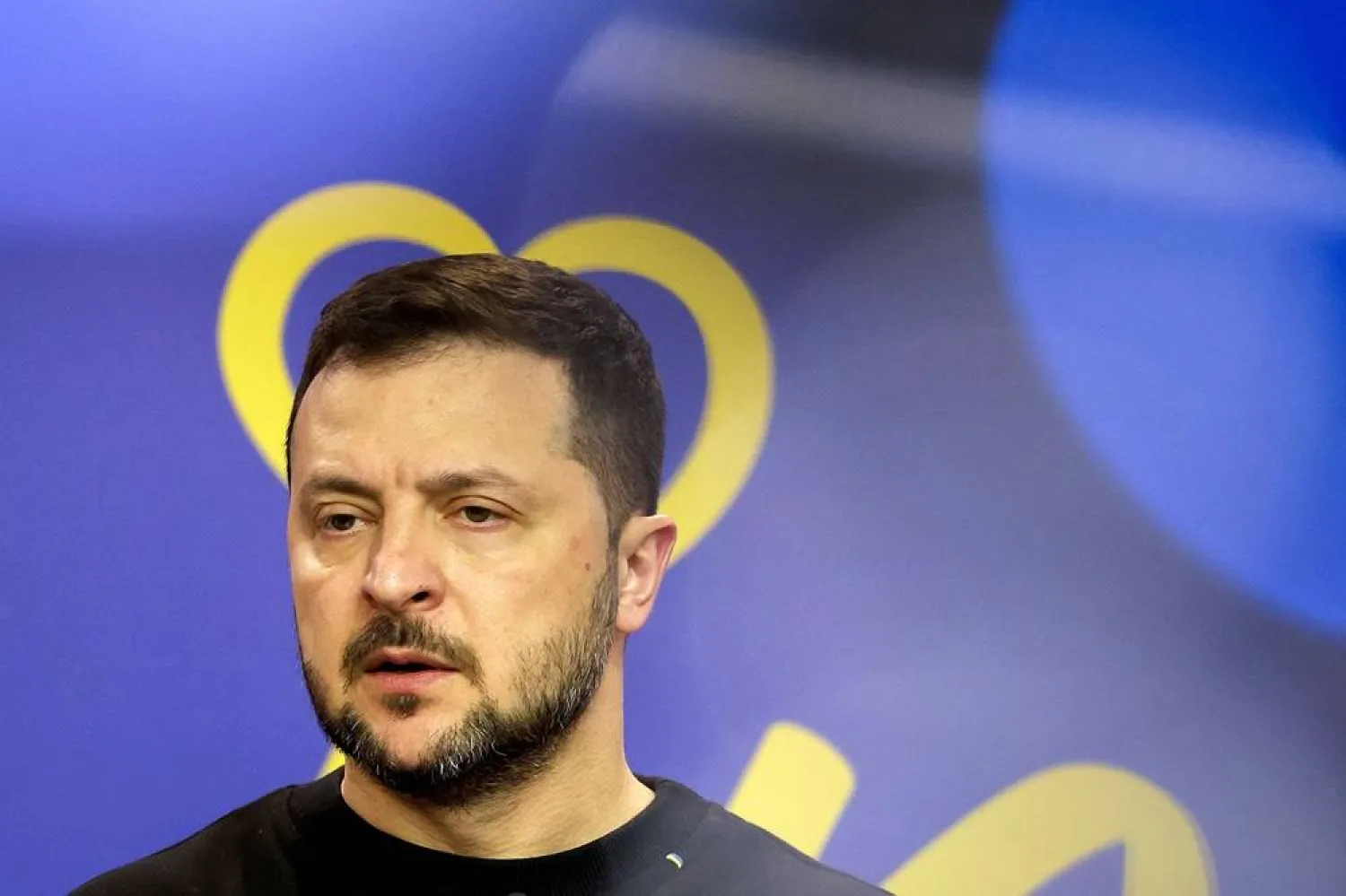Ukraine’s president pleaded Wednesday for more ammunition to repel Russian advances as he co-hosted a summit with Albania's government to build further support for Kyiv among southeastern European countries while signs of war fatigue grow.
Ukrainian President Volodymyr Zelenskyy said that increasing the supply of armaments, and especially ammunition, was paramount for Ukraine just over two years since Russia’s full-scale invasion. “I think this is the question of: Will we stand or not,” he said during his speech to the summit.
His impassioned plea comes as Russian troops have seized the initiative on the battlefield in Ukraine amid worsening shortages of weapons and soldiers for Ukraine's military. Western analysts and observers say the Russians are attacking in strength along four parallel axes in the northeast, aiming to press deeper into the Ukraine-held western part of the Donetsk region and also penetrating into the Kharkiv region north of it.
Russia took the strategic eastern city of Avdiivka earlier this month by overwhelming Ukrainian forces with large numbers of troops and superior air and artillery firepower. Fierce fighting has continued with Russia pushing Kyiv’s forces out of another three villages to the city’s west in the last few days.
Zelenskyy arrived in Albania overnight to join a summit of eleven countries from southeastern Europe, along with officials from the European Union and other international organizations. It was the latest stop in an international tour that saw him in Saudi Arabia on Tuesday to push for a peace plan and the return of prisoners of war from Russia.
Zelenskyy sought to build solidarity among his country and those of the Western Balkans, saying that all of them deserved to be members of the European Union and NATO if they choose.
“The European Union and NATO have provided Europe with the longest and most reliable era of security and economic development, and we are all equally worthy of being a part of the European and Euro-Atlantic communities,” Zelenskyy said.
Securing further support is key to Ukraine’s leader while his country faces battlefield challenges. Zelenskyy on Sunday announced that 31,000 Ukrainian soldiers have been killed in action since Russia’s invasion — the first time that Kyiv had confirmed the number of its losses.
He acknowledged, again, in Tirana that “the problems with the supply of ammunition" were impacting the situation on the battlefield.
Russia’s tactics in Avdiivka, including its use of dozens of glide bombs to obliterate Ukrainian positions in the city, has raised concerns it could replicate the same methods elsewhere along the frontline if Western aid to support air-defense systems and supplies of long-range weapons and artillery do not come through soon.
Around Bakhmut, which fell to Russia last May after the longest battle since the full-scale invasion began, Russian troops are trying to push towards Chasiv Yar, according to a spokesman for the operational group overseeing the eastern front line. Illia Yevlash said Tuesday that Russia is reinforcing its troops with assault units, using air attacks, and that heavy fighting was ongoing on the outskirts of the city.
Meanwhile, further north on the frontline, Russian troops are pressing forward around Lyman and Kupiansk, in the Kharkiv region that borders Russia.
Ukraine has urged Western leaders to increase the joint production of weapons and ammunition, improve Ukrainian air defenses and put new pressure on Russia via expanded sanctions.
Not all the countries at the meeting are in full support for Ukraine in its war against Russia. Kremlin ally Serbia is the only European country that has refused to align with EU sanctions following Russia’s invasion. It continues signing cooperation agreements with Moscow.
Serbian President Aleksandar Vucic said he insisted that the summit statement should not include any call for sanctions on Russia and should not include proposed wording about Russia's negative influence in the Balkan region.
Albania, a NATO member since 2009 and a candidate for EU membership, has voiced its full support for Kyiv against Russia’s invasion. It has provided military assistance in the form of ammunition and training of Ukrainian military. It was among the first countries offering shelter to Ukrainian refugees. It has joined international sanctions against Russian officials and institutions.
As a non-permanent member of the United Nations Security Council in the last two years, Albania joined the US in initiating resolutions against Russia’s invasion.
Zelenskyy said all of the countries at the summit must remain vigilant over what Russian President Vladimir Putin does next.
“The interaction between us, between neighbors, between neighboring regions, between all partners, has become a factor that along with the resilience of our people in Ukraine, does not allow Putin to prevail,” Zelenskyy said.









